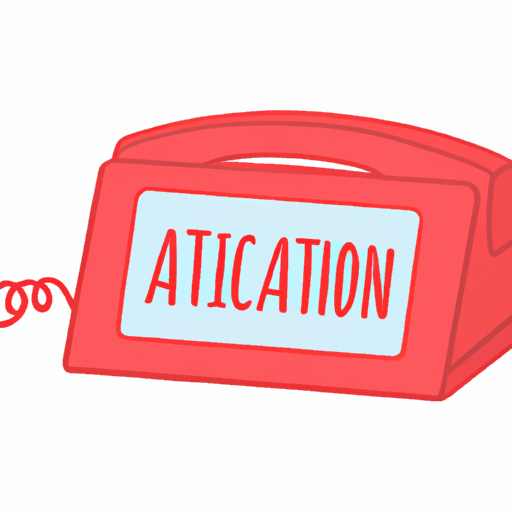
Imagine you’re sitting across from someone on a date, and it quickly becomes apparent that this isn’t going to be the romantic encounter you had hoped for. Panic sets in as you wonder how to salvage the situation without causing offense or making a scene. Luckily, there’s a solution: “How Do I Handle A Date That’s Not Going Well?” This innovative guide is your lifeline when faced with a disastrous date, offering practical tips and expert advice to gracefully navigate through uncomfortable moments and ensure you come out unscathed. Prepare yourself for a night of dating mishaps no more, as this product equips you with the knowledge and confidence to conquer any awkward situation.

Learn How to Get Ready For your Date Right Here!
Assessing the Situation
Reading the Signs
When you’re on a date and things aren’t going well, it’s important to read the signs and assess the situation. Take note of your date’s body language, facial expressions, and overall demeanor. Are they engaged and actively participating in the conversation, or do they seem disinterested and distant? Pay attention to their non-verbal cues – are they fidgeting, looking around, or avoiding eye contact? These signs can give you valuable insights into how your date is feeling and whether or not they are enjoying themselves.
Taking Stock of Your Feelings
It’s equally important to tune in to your own feelings and gauge how the date is making you feel. Are you feeling comfortable and at ease, or do you find yourself feeling anxious or uncomfortable? Trust your intuition and acknowledge any red flags or uneasy sensations that may be telling you something isn’t right. Your feelings matter too, and it’s essential to prioritize your own well-being and happiness.
Making a Decision
Deciding to Stay or Leave
After assessing the situation and taking stock of your feelings, it’s time to make a decision – whether to stay or leave. Consider whether the difficulty you’re experiencing is due to external factors such as a noisy venue or if it’s primarily because of a lack of chemistry or compatibility with your date. If it’s just the circumstances, you might want to give it another chance before making a hasty decision to leave. However, if you’re feeling genuinely uncomfortable or unhappy, it’s essential to prioritize your well-being and consider leaving the date.
Considering a Second Chance
If you’re unsure about leaving the date immediately, it may be worth considering giving it a second chance. Sometimes, first dates can be nerve-wracking, and both parties may be feeling anxious or not at their best. If you feel there is potential for a connection and the issues you’ve identified are not deal breakers, it might be worth suggesting a second date to see if the dynamics improve. Trust your instincts and make the decision that feels right for you.
Learn How to Get Ready For your Date Right Here!
Navigating Awkward Moments
Breaking the Ice
Awkward moments can happen on dates, but they don’t have to ruin the entire experience. One effective way to navigate these situations is by breaking the ice. Try asking open-ended questions that encourage your date to share more about themselves or their interests. Engage in active listening and demonstrate genuine curiosity. By taking the initiative to keep the conversation flowing, you can help alleviate awkwardness and create a more comfortable atmosphere.
Using Humor to Diffuse Tension
Humor can be a powerful tool to diffuse tension and ease awkward moments. Share a light-hearted joke or a funny anecdote that relates to the topic of conversation. Laughter has a way of breaking down barriers and creating a more relaxed environment. However, it’s important to be mindful of the type of humor you use and ensure it’s appropriate and respectful to both your date and the situation.
Changing the Topic
If the conversation seems to be dragging or becoming stagnant, it may be time to change the topic. Introduce a new subject that you’re both interested in or shift the focus to a more light-hearted and enjoyable topic. This can help redirect the conversation and inject some energy into the interaction. Remember to be attentive and listen to your date’s responses to ensure you’re engaging them in a meaningful way.
Managing Disagreements
Listening and Empathizing
Disagreements can arise during a date, and it’s crucial to handle them with empathy and understanding. Instead of becoming defensive or dismissive, practice active listening. Truly hear your date’s perspective without interrupting or interrupting. Validate their feelings and let them know that you understand and acknowledge their concerns. By demonstrating empathy, you can foster a sense of trust and open communication.
Expressing Your Concerns
It’s equally important to express your concerns and feelings in a respectful and constructive manner. Share your thoughts without attacking or blaming your date, focusing on using “I” statements to convey how the situation is impacting you. By expressing your concerns calmly and honestly, you can create an opportunity for a meaningful discussion and potential resolution.
Finding Common Ground
In any disagreement, finding common ground can be instrumental in moving forward. Look for areas of agreement or shared interests that you can build upon. By focusing on shared values or goals, you can foster a sense of unity and work towards finding a solution that satisfies both parties. Remember that compromise and understanding are key ingredients in resolving conflicts.

Dealing with Rude or Offensive Behavior
Setting Boundaries
If you encounter rude or offensive behavior during a date, it’s crucial to establish clear boundaries. Communicate your discomfort calmly and assertively, letting your date know that their behavior is not acceptable. State your expectations for respectful and kind treatment, and be prepared to enforce your boundaries if necessary. Remember, you deserve to be treated with respect, and it’s important not to tolerate behavior that crosses those boundaries.
Politely Exiting the Situation
If the rude or offensive behavior persists, it may be necessary to politely exit the situation. Trust your instincts and prioritize your safety and well-being above all else. Excuse yourself politely and firmly, expressing that the date is not going as you had hoped and that you no longer wish to continue. Remember that you have the right to end any interaction that makes you feel uncomfortable or unsafe.
Engaging in Positive Communication
Active Listening
Engaging in positive communication is essential for a successful date. One fundamental aspect of this is active listening. Pay attention to what your date is saying, maintain eye contact, and show genuine interest in their thoughts and experiences. Avoid interrupting and demonstrate that you value their perspective by asking follow-up questions and offering thoughtful responses. Active listening can foster connection and create a more engaging and enjoyable interaction.
Offering Compliments
Another way to engage in positive communication is by offering sincere compliments. Take note of your date’s strengths, qualities, or experiences that you genuinely appreciate and express your admiration. A genuine compliment can boost your date’s confidence and contribute to a more positive and uplifting atmosphere. However, it’s crucial to be authentic and avoid giving insincere or excessive praise.
Asking Open-Ended Questions
Asking open-ended questions is a fantastic way to encourage your date to share more about themselves and promote meaningful conversation. Open-ended questions require more than a simple “yes” or “no” response and allow your date to express themselves more fully. This can help create a deeper connection and foster a genuine understanding of each other’s perspectives. Remember to be attentive and actively listen to their responses to demonstrate your interest and engagement.

Knowing When to Call it Quits
Recognizing Deal Breakers
Sometimes, despite your best efforts, it becomes clear that there are fundamental differences or deal-breakers that cannot be overcome. It’s important to recognize these deal-breakers and be honest with yourself about whether or not the relationship is worth pursuing. Deal-breakers can vary from person to person, but they often encompass core values or incompatible lifestyles. Trust yourself and prioritize your happiness and well-being.
Trusting Your Gut
Intuition can be a powerful guiding force when it comes to knowing when to call it quits. If something doesn’t feel right or you have a lingering sense of unease, it’s crucial to trust your gut. Our instincts are often honed over time and can provide valuable insights into whether a situation is healthy and fulfilling for us. Don’t ignore your intuition – it’s there to protect and guide you towards the right decisions.
Ending the Date Gracefully
Thanking Your Date
Regardless of how the date unfolded, it’s important to end it gracefully. Thank your date sincerely for their time and company, even if things didn’t go as well as you had hoped. Express gratitude for the opportunity to get to know them and for any positive aspects of the experience. A simple and genuine “thank you” can leave a lasting impression and maintain a sense of respect and courtesy.
Choosing Your Words Wisely
When concluding the date, choose your words wisely and be considerate of the other person’s feelings. If you don’t wish to pursue a second date, be gentle and diplomatic in your explanation. Avoid harsh criticism or personal attacks, instead focusing on expressing that you didn’t feel a strong connection or compatibility. Be kind and compassionate, acknowledging that everyone has their unique preferences and that it’s okay not to be a perfect match.

Reflecting on the Experience
Learning from the Situation
After the date, take time to reflect on the experience and consider any lessons you can learn. Think about what went well and what didn’t, and use this knowledge to grow and improve for future dating experiences. Reflecting on the situation can help you understand your own preferences, boundaries, and values better, allowing you to make more informed decisions moving forward.
Moving Forward
Once you’ve learned from the experience, it’s important to move forward with a positive mindset. Recognize that not every date will be a perfect match, and that’s okay. Don’t let one disappointing experience discourage you from continuing to pursue meaningful connections. Each new date is an opportunity to learn, grow, and get closer to finding the right person for you.
Seeking Support
Talking to a Friend
If you find yourself feeling overwhelmed or uncertain after a challenging date, don’t hesitate to reach out to a trusted friend for support. Share your experience and feelings with them, and allow them to provide a listening ear, advice, or a fresh perspective. Sometimes, discussing the situation with a friend can help provide clarity and emotional support, giving you the strength and confidence to move forward.
Considering Professional Help
If you consistently find yourself struggling with dating experiences or find that your emotions are significantly impacting your well-being, considering professional help may be a beneficial option. A therapist or counselor can provide guidance, support, and tools to help you navigate the complexities of dating and relationships. They can assist you in gaining insight into patterns or challenges you may be facing and help you develop healthy coping mechanisms and strategies.
Remember, dating is a process of self-discovery and building connections with others. Embrace the journey, learn from each experience, and prioritize your own well-being every step of the way.




